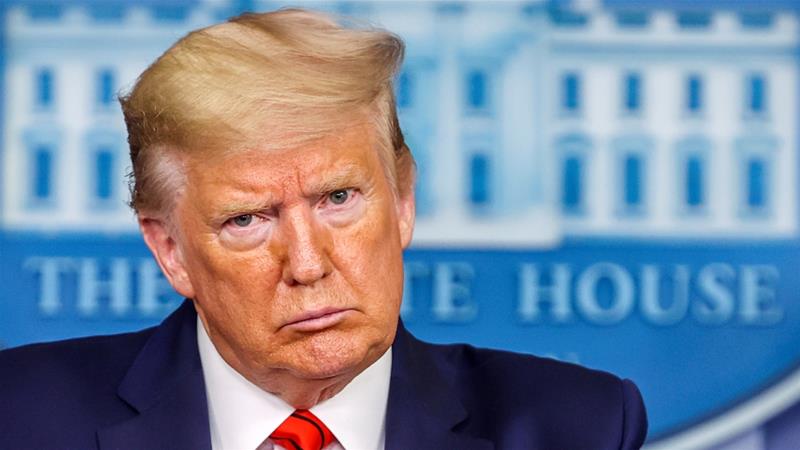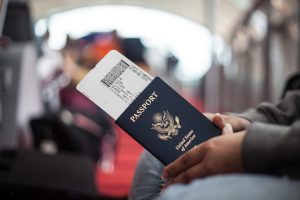
Who Will Be Affected by Trump’s Executive Order to “Suspend Immigration”?
On the night of Wednesday, April 22, 2020, President Trump signed the Executive Order “Suspending Immigration” that he had announced two days earlier. After reviewing the text of the signed executive order, I would say it could have been much worse because the final executive order contains many exemptions and hidden loopholes.
First, the executive order has no impact on the permanent residents of the United States. or conditional permanent residents, regardless of whether they are currently inside or outside the US This includes those conditional permanent residents in the process of removing conditions from their permanent residence under the I-829 or I-751 petition process.
The executive order affects the spouses and children under the age of 21 of permanent residents of the United States, who are outside the United States and are currently waiting for an appointment to be interviewed at a United States embassy or consulate. abroad in connection with your immigrant visa application. The executive order will prevent them from receiving an appointment during the 60-day period that will be in effect, and possibly longer if President Trump renews the executive order. That said, these immigrants are already blocked from getting an interview appointment with an immigrant due to the fact that US embassies and consulates. Immigrant and non-immigrant visa processing has been closed worldwide until further notice due to the Coronavirus Crisis. Further, spouses and children under the age of 21 of permanent US residents, who are currently in the US in some other visa status and are eligible to apply for adjustment of status to permanent residence within the US they can still do it. I also want to point out that there is no reference to stopping the processing of I-130 petitions for spouses and children under the age of 21 of permanent US residents. or even consular processing of the immigrant visa until the time of having a scheduled interview appointment. I also want to point out that there is no reference to stopping the processing of I-130 petitions for spouses and children under the age of 21 of permanent US residents. or even consular processing of the immigrant visa until the time of having a scheduled interview appointment. I also want to point out that there is no reference to stopping the processing of I-130 petitions for spouses and children under the age of 21 of permanent US residents. or even consular processing of the immigrant visa until the time of having a scheduled interview appointment.
The executive order also affects immigrants for employment reasons in categories EB-1 through EB-4, who are outside the U.S. seeking an immigrant visa through a US embassy or consulate abroad. There is an exemption to this for physicians, nurses, and other healthcare workers, as they may be recruited for the treatment of patients with the Coronavirus, as well as for medical researchers participating in research related to the Coronavirus, and their spouse and children under 21 years of age. Immigrants in categories EB-1 through EB-4, who are currently in the U.S. in some other visa status and are eligible to apply for adjustment of status to permanent residence within the US they can still do it. Additionally, immigrants within the US who have an ongoing immigration process, including an application for labor certification, an I-140 petition can continue those processes. Even the consular immigrant visa process could continue until such time as an interview appointment is scheduled.
Notably, the executive order specifically exempts EB-5 investors from their impact, regardless of whether they are located within or outside of the United States, and thus all of their immigration processes will continue without interruption.
As noted in the previous article, all nonimmigrant visas are exempt from the impact of the executive order. However, the executive order leaves the door open for further review to determine whether certain categories of nonimmigrant visas would be blocked under a future executive order.
Spouses-and-children-under the age of 21 of U.S. citizens are exempt from the executive order. However, the parents, siblings, and family members of United States citizens are not exempt from the executive order, if they are outside the United States and go through the immigrant visa process through a U.S. embassy or consulate. United States.
There are other exemptions for family members of members of the United States Armed Forces, as well as for specific categories of people deemed important to the United States Department of Defense or law enforcement agencies in the United States.
In summary, while President Trump’s executive order to “suspend immigration” will unfortunately delay the immigration processes of some immigrants through US embassies and consulates abroad, it may not delay them much more than that those same United States embassies and consulates that are closing for visa processing due to the Coronavirus Crisis are already doing so. Otherwise, the effects of the executive order are not as bad as it seemed based on the broad and ambiguous wording of President Trump’s tweet on Monday night. As a result, I think there are unlikely to be major legal challenges to the executive order, since those affected by it probably would not have had an appointment for an interview in the next 60 days, anyway. However, if Trump renews the executive order for another 60 days, and another 60 days, frustrated applicants and their employers may decide to challenge the renewal of the executive order. Also, most people and businesses are conserving their financial resources, and they probably won’t want to spend expensive litigation in federal court.

